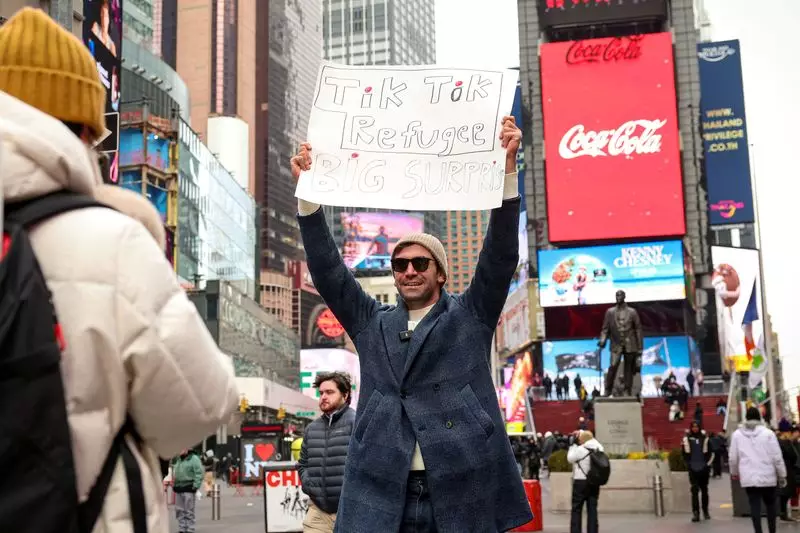The digital landscape is abuzz with uncertainty as the potential banning of TikTok in the United States looms over millions of users and businesses alike. The platform, which has rapidly charmed a significant portion of the American populace, faces a daunting ultimatum: resolve concerns regarding its ownership or face a complete shutdown. This situation underscores the intersection of technology, national security, and socio-economic dynamics that define much of today’s globalized world.
As the clock ticks down to the potential ban, TikTok finds itself in a precarious position. The company’s warning that its services may cease unless the Biden administration provides reassurances to major tech firms like Apple and Google reflects a growing need to navigate the complexities of U.S.-China relations. The Biden administration, having enacted a law in April to regulate the app, is now in a position to make critical decisions regarding national security versus digital freedom. With approximately 170 million domestic users, TikTok’s influence is undeniable, yet it is entangled in a web of political and economic considerations.
The proposal for a ban has individuals and organizations reflecting on the possible repercussions. Small businesses, heavily reliant on TikTok for advertising and engagement, find themselves in a state of existential limbo. As marketing executives frantically devise contingency plans, the phrase “hair on fire” aptly captures the urgency felt within the industry. The shift towards alternative platforms—such as the lesser-known China-based RedNote—indicates a significant upheaval in user behavior driven by uncertainty.
The impending TikTok ban has ignited a fervor among competing social media platforms. As users consider migrating to rivals like Meta and Snap, stock prices of these companies have seen a notable uptick in anticipation of a possible influx of users and advertising revenue. This competitive landscape highlights how swiftly companies can pivot when a formidable rival like TikTok faces challenges. The desire for an improved financial outlook is starkly visible in the reactions of investors who are keen to capitalize on the misfortunes of a competitor.
Amidst this turmoil, TikTok maintains its position as a cultural touchstone that transcends mere app functionality. Its creative tools and vibrant community have redefined digital interaction, particularly among younger demographics. This cultural significance cannot be overlooked; a ban not only impacts businesses financially but may also signify a broader erosion of free expression and innovation in the digital realm.
The political ramifications of this potential ban cannot be separated from the corporate implications. Former President Donald Trump has signaled his intentions to reevaluate the ban’s implementation, potentially considering an executive order to suspend enforcement activities. This maneuvering embodies the intertwining of politics and business, as the fate of TikTok hangs in the balance based not solely on operational viability but also on potential political favors and alliances.
In this context, TikTok’s CEO, Shou Zi Chew, is expected to attend the upcoming presidential inauguration—a calculated move illustrating the company’s strategy to involve itself within the governmental frameworks that ultimately affect its existence. Offers from entities interested in acquiring TikTok’s U.S. operations add another layer to this intricate narrative. With notable figures like Elon Musk reportedly expressing interest, the discussions surrounding TikTok reflect broader themes of ownership and market influence.
The impending TikTok ban serves as a manifestation of larger themes concerning technology, national identity, and corporate power. As debates ensue regarding safety, governance, and cultural innovation, the outcome will speak volumes about the future trajectory of digital platforms in a geopolitically charged environment. TikTok exemplifies not only a popular app but a battleground for political interests and societal trends. The next steps taken by both government and corporate entities will not only decide the fate of this app but will also shape the landscape of digital interaction for years to come. As stakeholders grapple with the implications of this looming ban, one cannot help but wonder: what happens next in the age of social media wars?

